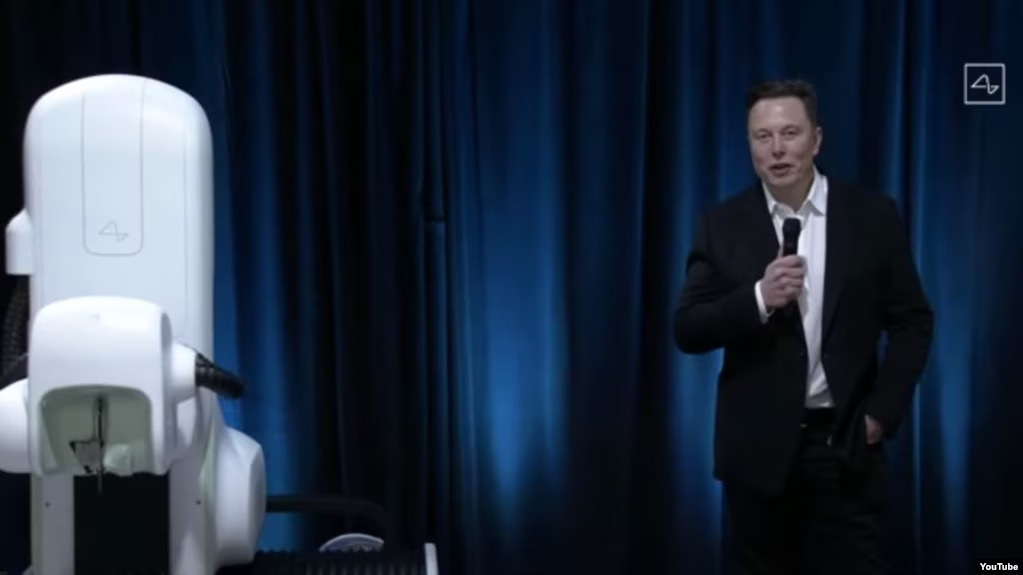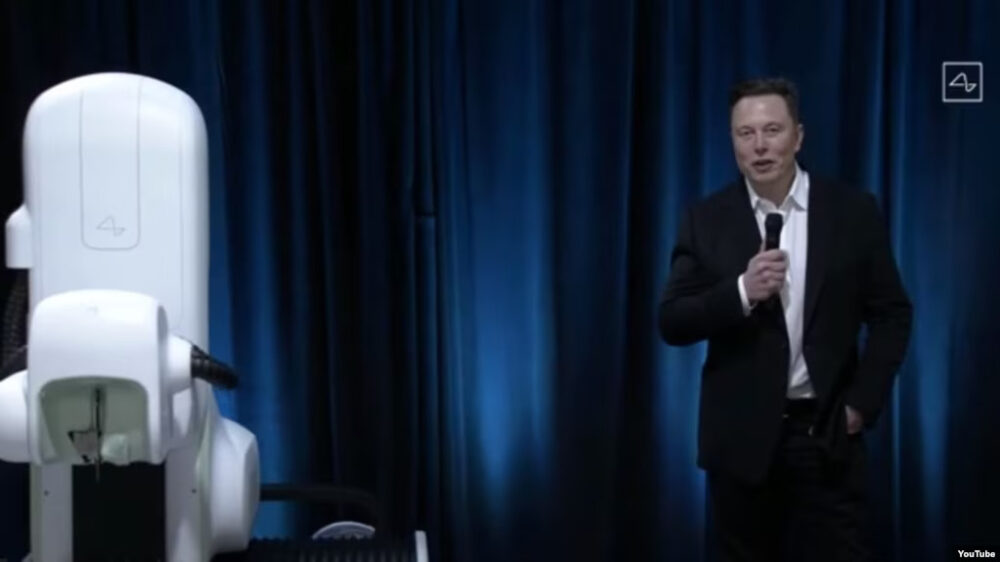
The American technology company Neuralink has received U.S. government approval to test its brain implant device in humans.
The approval came from the Food and Drug Administration (FDA). Neuralink says the FDA’s approval will permit the company to expand its current testing program involving animals.
Neuralink is owned by American billionaire Elon Musk. He also owns several other companies, including Tesla, SpaceX and Twitter.
The coin-sized device is designed to be placed inside the skull. Small wires connect it directly to the brain. The implant contains a small computer that is built to communicate with the brain. This lets it control operations in the body.
Neuralink has said the technology is designed to treat brain disorders and help spinal cord injury victims regain body movement. It might also be able to help blind people see again.
Musk has said he believes the device could also be used to improve intelligence to help humans keep up with supercomputers and artificial intelligence (AI) technology.
Neuralink said in a statement that the FDA approval was “an important first step” for the technology. “We are excited to share that we have received the FDA’s approval to launch our first-in-human clinical study,” Neuralink said on Twitter.
Neuralink said it had not yet started the process of choosing human subjects to test the implants on.
Musk spoke about the technology during a presentation last December. He said the company had been “working hard to be ready for our first human (implant).” He added that the company wanted to be “extremely careful” and make sure the implant works “well before putting a device in a human.”
During the presentation, Neuralink showed several monkeys “playing” simple video games and controlling a computer with use of the Neuralink implant. The company has also tested the device on pigs and sheep.
Reuters news agency has reported on the company’s animal experiments in the past. Some Neuralink employees told Reuters last year that the company had made mistakes in animal operations. They said the mistakes came because the process was hurried. This led to more animal deaths than necessary, the employees said.
Neuralink tested the implant on animals in hopes of producing data that would help the company gain FDA approval for human testing, the employees told Reuters.
In one 2021 case reported by Reuters, the company implanted 25 out of 60 pigs with the wrong-sized devices. All the pigs were later killed. Employees told the news agency that such mistakes could have been easily avoided with more preparation.
Reuters said it reached out to both Neuralink and Musk for comments on its reports. Neither answered the requests for comments.
The Department of Transportation is separately looking into Neuralink, Reuters reported. The department’s investigation centers on whether the company illegally transported dangerous pathogens on devices removed from monkey brains without following effective containment measures.
Neuralink is also under investigation by the U.S. Department of Agriculture’s (USDA) Office of Inspector General, the news agency said. That investigation is looking into possible animal-welfare violations and the USDA’s oversight of Neuralink.
Several other companies are also working on devices to link the brain to computers. One of them is New York-based startup Synchron. It announced in July it had completed its first brain-computer implant, called an interface, in a human.
Rajesh Rao is co-director of the Center for Neurotechnology at the University of Washington. After Musk’s presentation last year, Rao said he does not believe Neuralink is ahead of other companies in developing brain-computer interfaces. But he said he does think the company is “quite ahead” in hardware development of the devices.
I’m Bryan Lynn.
Bryan Lynn wrote this story for VOA Learning English, based on reports from The Associated Press, Reuters, Agence France-Presse and Neuralink.
Words in This Story
implant – n. a device placed inside the body in a medical operation
pathogen – n. a small organism, such as a virus or bacterium, that can cause disease
oversight – n. responsibility for a job or activity that seeks to make sure it is being done correctly
skull – n. the structure of bones that form the head and face of a person or animal
spinal cord – n. the large group of nerves which runs through the center of the spine and carries messages between the brain and the rest of the body
welfare – n. the state of being happy, healthy, or successful; well-being
Reference: https://learningenglish.voanews.com





